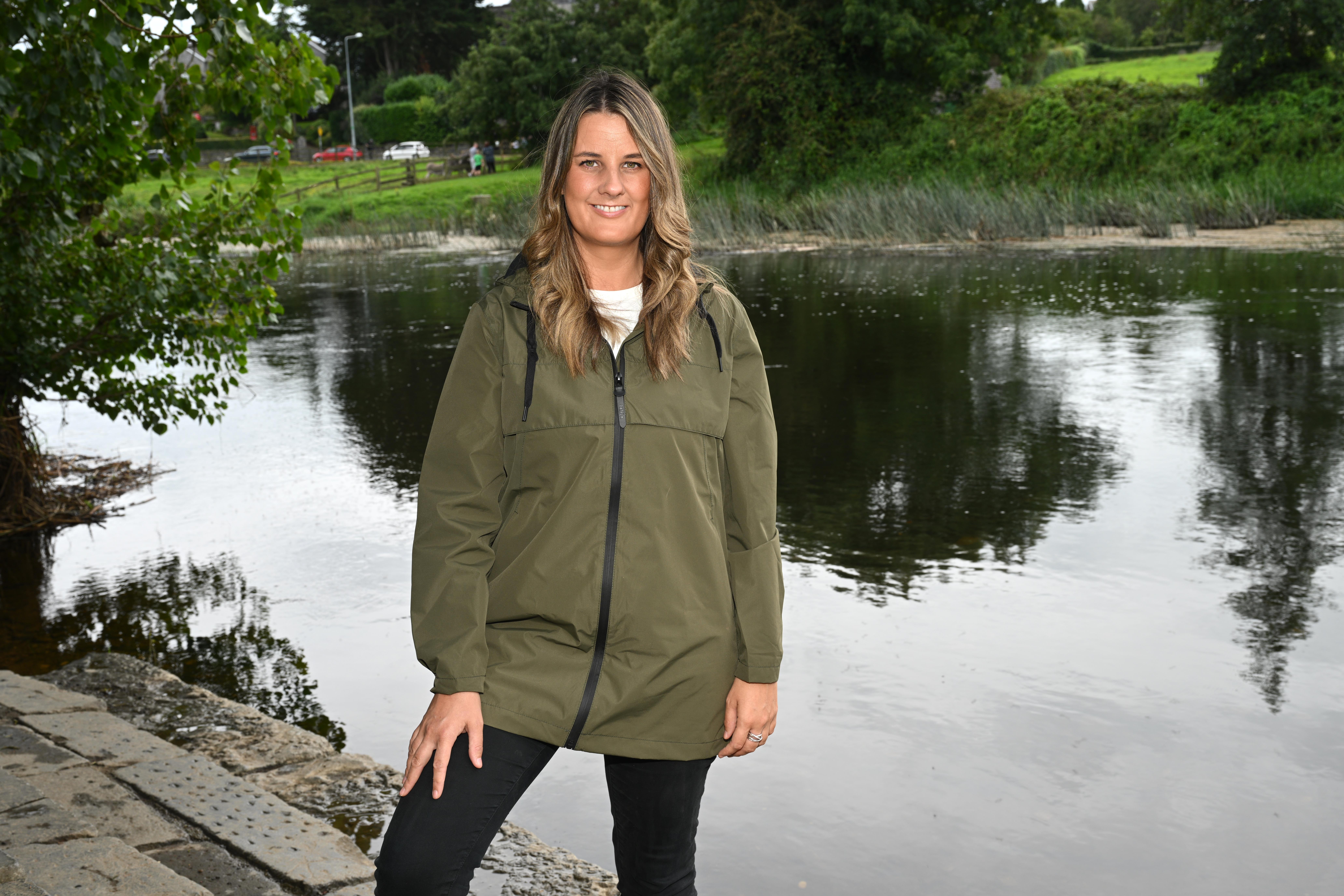
Co. Meath native pioneering global plant-based food production using Irish seaweed
When Co. Meath native Jennifer O’Brien told her family she was leaving the corporate world to start a business in seafood and seaweed, they found it hard to understand! But four years on the gamble to follow her passion for the ocean is paying off.
Today Jennifer runs food tech company, Sea & Believe, which is using seaweed to develop a range of nutritious plant-based seafood that doesn’t compromise on taste, or the health of the ocean.
Sea & Believe already has several products developed, including the Irish Seaweed Burger and Seaweed Goujons which proved a big hit when they were trialled in SuperValu supermarkets last year.
“We started in ten stores and that increased to 50. I was working from a kitchen, so I realised I needed to develop a more sophisticated production process, and to look towards the international market,” she said.
But the Sea & Believe product that Jennifer is proudest of is the world’s first plant-based fillet of ‘cod’ that flakes like real fish. “It tastes delicious and contains all the rich flavours of the sea,” she says.
The company achieved its goal of developing this flakey, nutritious, sustainable product using plant-based proteins and technology. “By reverse engineering the muscle structure and texture of a real fish, we created a substitute using a combination of chemical and physical processes to produce a nutrient dense flakey fish texture combined with native Irish seaweed.”
The wild seaweed used by Sea & Believe is sourced from Connemara where Jennifer spent a lot of time when she was growing up, and where she got her love of the sea.
When Jennifer joined the BIM Innovation Studio Lab during the pandemic in 2020 she was only starting her business. The lab is delivered by aquaculture accelerator, Hatch Blue, and the 5th year of the programme – which is open to both Irish and EU projects involved in the aquaculture technology arena – takes place again this October in the RDI Hub in Killorglin, Co. Kerry.
“When I was put through my paces in the Innovation Studio Lab my business was just an idea. I had developed a seaweed burger and was playing around with other products. But the Innovation Studio Lab really got me off the ground. It was challenging but brilliant, and turned my dream into a real business”.
One of the positives about the Innovation Studio Lab was the introduction it gave start-ups to investors. “As a result, I applied for an accelerator fund in the US and was successful. If I hadn’t been part of the Innovation Studio Lab I don’t think I would be up and running today.”
“It also gave me huge confidence to follow my dreams and confirmed my belief in the business. I learned about the processes you have to go through to advance. I had a vision to grow my own seaweed in Ireland and I was taught the steps to go through to plan this.”
In addition, the Innovation Studio Lab impressed on companies taking part the importance of identifying markets and who you are targeting with your products. “There is no point if you don’t have a customer!” said Jennifer.
Jennifer depends on high quality native Irish seaweed for her products, but there is a shortage in Ireland partly due to rising sea temperatures. She says seaweed is an incredible resource, and she couldn’t understand why how Ireland wasn’t using it more.
The next step in the business journey for Sea & Believe is to create one of Ireland’s first seaweed farms in Cleggan Bay, in Connemara. The Seaweed site will be used to grow Palmaria Palmara (Dillisk), with cultivation expecting to start before the end of the year.
“Scaling up native Irish seaweed in an aquaculture setting will ensure long term supply of seaweed to meet future demand, and less reliance on wild stock. We can incorporate seaweed into plant-based product and at the same time restore eco systems and increase biodiversity. Seaweed farms can draw down three times as much carbon as the same size forests.”
Palmaria Palmata is one of the highest value native Irish seaweeds which is now under threat. It is a red seaweed, with high protein levels and its colour, flavouring and binding capabilities is good for making fish and meat alternatives.
“Seaweed protein is underutilized as an alternative protein source. The benefits of using nutrient-rich seaweed as a fish or meat alternative are endless, and can replace some highly processed ingredients. Since seaweed grows in the ocean, it doesn’t use up valuable farmland or require fertiliser that can pollute freshwater sources,” says Jennifer.
Palmaria Palmata also has health benefits including anti-inflammatory qualities. Jennifer was diagnosed with Asthma as a child, and has always found that taking seaweeds baths have helped.
As well as developing a seaweed farm Sea & Believe is also planning to establish a food lab in Connemara.
“Our mission is to boost the knowledge, science and technology of native seaweed species around the coast of Ireland and the world, and unlock the power of seaweed to its highest value by developing amazing products such as plant based seafood.”
Jennifer would encourage any aquatech start-up to apply for the Innovation Studio Lab. “It is a wonderful programme and it is free. It is the most valuable thing I did in Covid, and I have it to thank for where I am at today.”